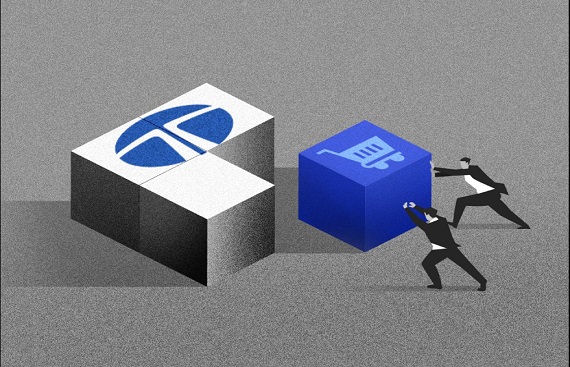Tata Digital may provide Esop to woo top startup talent

Tata Digital may offer employee stock ownership plan (Esop) to all its employees in a proposal to attract and retain good talent from the startup community, people aware of the development.
The firm, which houses consumer-centric digital businesses and competes with startups, had first offered management stock options to the founders of online grocery retailer BigBasket in which Tata Digital has picked up a majority stake.
It may extend similar offers to employees as well because many candidates from the startup community that the firm has interviewed for various roles are understood to have sought ESOP in their compensation packages, the sources said.
Tata Digital did not comment.
The company had begun by appointing some senior TCS talent. This prompted some industry experts to question whether the entity would be capable to offer the right startup culture and empower younger talent to take on unicorns and other fast-growing startups in various digital service segments.
“It is all about building unicorns and encashing stock options within a short period of time compared to established older conglomerates who are into institution building,” stated G C Jayaprakash, founder director of boutique executive search firm Accrete Executive Search.
He said Tata Digital will have to offer compensation structures in line with pay packets offered by startup firms.
“All the startup companies including Flipkart, Byju's, Zomato and Swiggy offer huge compensation packets given the short shelf life of growing revenues and building valuations to attract top investors,” Jayaprakash stated. “Tata Digital as a new company will also have to offer such compensation to attract startup talent.”
The digital entity – which is presently testing a super app among a large section of Tata group employees as it prepares to offer the various consumer services across group firms on the same platform – is also working on its organisational structure.
It is seen as a challenging task to ensure key decision-making roles to external startup talent along with some senior Tata talent in leadership roles.
The new team of employees is likely to help Tata Digital establish a more consumer interactive culture led by technology.
In June, the company had named Mukesh Bansal, founder and CEO of fitness startup CureFit, as its president.
While Tata Digital has appointed Modan Saha, a senior TCS talent, as CEO of its financial services vertical, it is not clear if heads of other verticals will be made CEOs.
“Saha is a senior resource with huge understanding of the finance space and has the capability to oversee the entire financial vertical, including payments and insurance among others,” said a senior official close to the development. “The finance vertical will also be a very critical function and needs the calibre of Saha. Other verticals will possibly not have a CEO and everyone reports into Pratik Pal, CEO of Tata Digital,” the person said on condition of anonymity.
Plans To Raise $5 billion
Tata Digital is also seeking to attract early investors to raise an estimated $5 billion for the capital-intensive ecommerce platform, sources said.
The entity is understood to have held discussion with a bunch of long-term investors consisting of Canada Pension Plan Investment Board, Singapore’s Temasek Holdings, SoftBank Group, and Abu Dhabi investment Authority.
The group is putting various offerings across ecommerce, financial services, fashion, lifestyle, among others, together to create a loyalty programme for its 45 million-plus customers which will assist them use the Tata ecosystem of services and goods.
Management stock ownership plan (MSOP) at present granted to some senior officials who have joined from BigBasket was reportedly based on the startup’s past performance and the future potential of eligible employees.
The vesting timeline starts three years from the date of allocation and the value grows higher as the company’s valuation grows before it hits the public market within an estimated 2-3 years.
